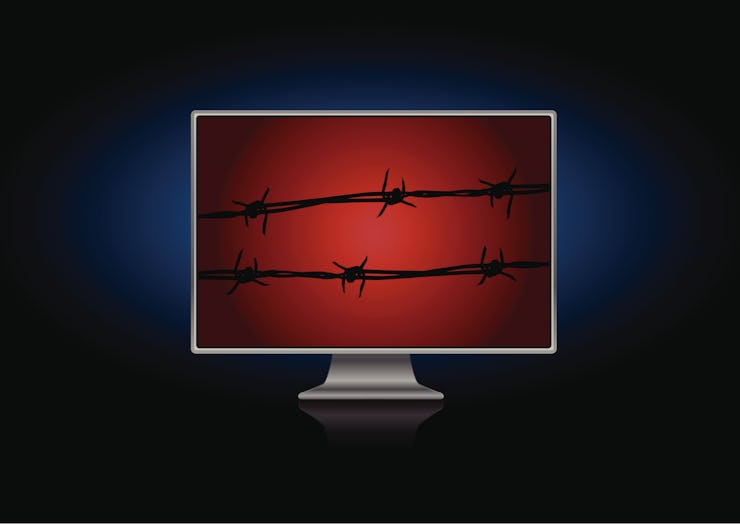"Biologically inspired" A.I can beat the world's strictest internet censorship
Repressive governments might not be ready for Geneva

Countries like China, Iran and Russia are known for strictly censoring what their citizens can see on the internet. These authoritarian governments do this to control their people and protect those in power. It can be very difficult, and often dangerous, to try to get around this, but a new tool looks like it could be the best way to beat censorship in these kinds of oppressive countries.
Researchers at the University of Maryland have developed a kind of AI that they’ve named Geneva, which stands for “Genetic Evasion.” This AI uses a kind of machine learning to automatically detect bugs and gaps in a country’s censorship system so the user can view uncensored content.
Kevin Bock, a computer science Ph.D. student at UMD and lead author of the research, tells Inverse that this kind of machine learning is based on evolution.
“It’s a form of machine learning,” Bock says. “It’s a biologically inspired machine learning.”
Bock explains that Geneva essentially tries different randomized algorithms to beat the censorship algorithm and keeps the ones that are found to be effective and gets rid of the ones that don’t work. Over time, it gets better and better at beating the censorship system.
“We run them all against the censor, and we see how they all do,” Bock says. “We give them all numerical scores. The ones that do really poorly are killed off and the ones that do pretty well will live on to the next generation.”
Geneva is, at its core, an algorithm that tries to beat other algorithms. In China, for example, the censoring algorithm might be looking for keywords in a web search and blocking access to content that relates to that keyword. To combat this, Geneva might sort of scramble the data the censoring algorithm is looking at it so it doesn’t locate that keyword or recognize that someone is looking at a blocked website.
The researchers put Geneva up against China’s censorship algorithm by using it on a computer with an unmodified Google Chrome browser in the country and found they were able to browse the internet without content being censored. They were also able to beat India and Kazakhstan’s censorship systems.
Russia has a somewhat unique censorship model in that the state doesn’t control the internet directly but rather has private internet service providers do the censoring for them, so it may be more complicated to beat Russia’s system. Dave Levin, an assistant professor of computer science at UMD and senior author of the research, tells Inverse they’re hoping to put Geneva up against Russian censorship as soon as they can.
“We have not yet gotten vantage points inside of Russia to probe censorship the same way we have in other countries,” Levin says.
See also: Russia’s internet censorship is a blueprint for censorship in the U.S.
Geneva could prove to be the best censorship-defeating tool that’s been developed, but one problem with creating a tool like Geneva is that governments might just find a way to block citizens from ever getting it. Levin says that’s not a problem quite yet.
“Right now—given that it’s such a new tool—I don’t think it’s really on the radars, just yet, of censoring regimes,” Levin says.
Levin says countries might also just try to improve their censorship systems and develop algorithms that can beat Geneva, but Geneva might be able to beat them by learning from the new obstacles being put in place. He says one way they might try to identify if someone is using Geneva is by looking for randomized data being sent across the internet that doesn’t look like it was created by normal human activity, but they could just train Geneva to be less noticeable at that point.